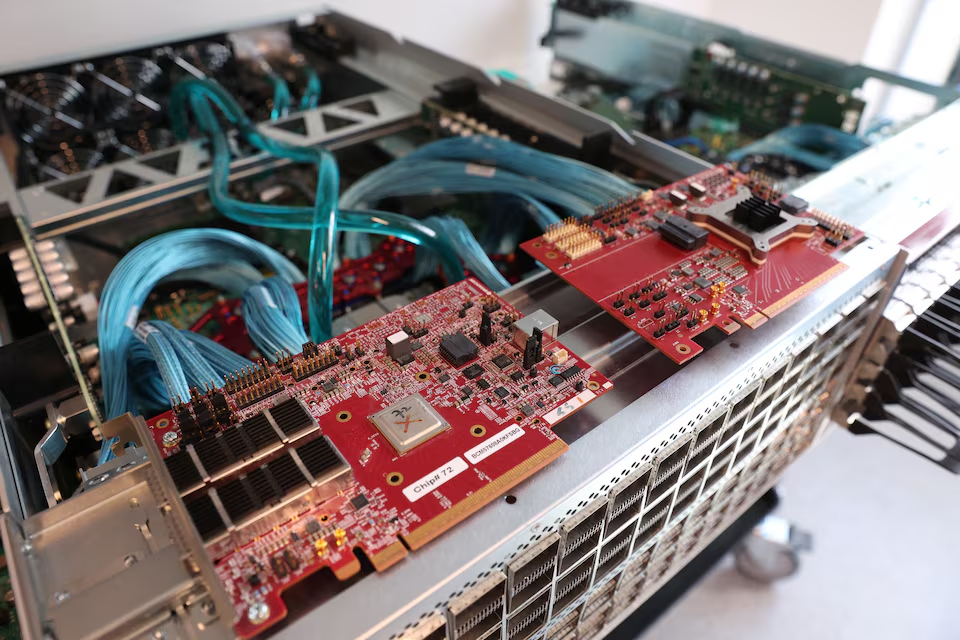News
Exclusive: Broadcom Unveils New Networking Chip as Rivalry with Nvidia Intensifies

Broadcom (AVGO.O) on Tuesday announced a new networking chip designed to help companies link together millions of processors for artificial intelligence computing systems—an escalation in its growing competition with Nvidia (NVDA.O).
The chip, called Thor Ultra, enables data infrastructure operators to connect far more chips than before, allowing them to build and run large AI models that power applications like ChatGPT.
Thor Ultra will compete directly with Nvidia’s networking interface chips, while strengthening Broadcom’s dominance over network communications inside AI-focused data centers.
The launch comes just a day after Broadcom revealed a major deal to supply custom chips worth 10 gigawatts for ChatGPT-maker OpenAI, starting in the second half of 2026—a move seen as a challenge to Nvidia’s commanding position in the AI accelerator market.
AI represents a major growth opportunity for Broadcom. CEO Hock Tan said late last year that the company’s addressable AI chip market could reach between $60 billion and $90 billion by 2027, divided between its networking chips and data center processors, which already power systems built by Alphabet’s (GOOGL.O) Google and OpenAI.
Broadcom reported $12.2 billion in AI-related revenue for fiscal 2024. In September, it also announced a new unnamed customer for its custom data center AI chips—valued at $10 billion.
The Thor Ultra chip is part of Broadcom’s expanding lineup of networking products and serves as a crucial bridge between AI systems and the rest of a data center. Networking chips allow operators to efficiently move information across large facilities.
“In distributed computing systems, networking plays an extremely critical role in building these large clusters,” said Ram Velaga, Broadcom’s senior vice president, in an interview with Reuters. “It’s no surprise that anyone tied to the GPU business wants to secure a foothold in networking.”
Focus on Chip Design
While networking chips are central to Broadcom’s strategy, its custom-designed AI processors for major cloud companies like Google remain a key growth driver.
Broadcom has worked on multiple generations of Google’s Tensor processors, which the tech giant began developing more than a decade ago. Analysts estimate the partnership has generated billions of dollars in revenue for Broadcom.
During a recent visit to Broadcom’s San Jose networking chip testing labs, Reuters saw engineers developing and testing current and next-generation designs. Company officials detailed the rigorous steps involved in building and validating the new networking processors.
For Thor Ultra, Broadcom engineers doubled the bandwidth compared to the previous version and subjected the chips to extensive evaluation from the early stages of production.
To create a chip like Thor Ultra—or Broadcom’s flagship Tomahawk networking switch series—engineers build an entire system around it. Velaga explained that hardware and systems teams work together to finalize packaging, power requirements, and heat output.
Broadcom doesn’t sell servers directly; instead, it provides customers with reference designs and test components that serve as blueprints for building their own networking infrastructure.
“For every dollar we spend on silicon,” Velaga said, “our ecosystem partners invest at least six to ten dollars. That’s why our main focus is on design—getting it close to production-ready before handing it off.”
